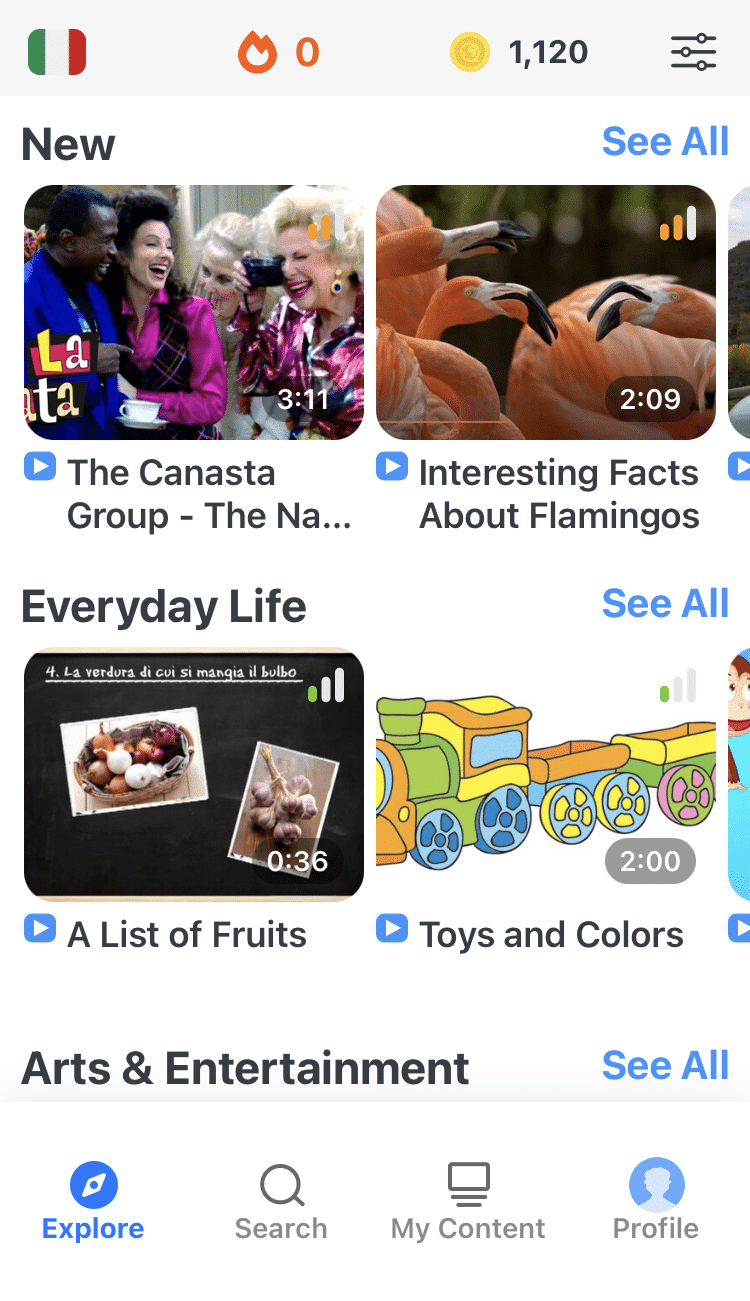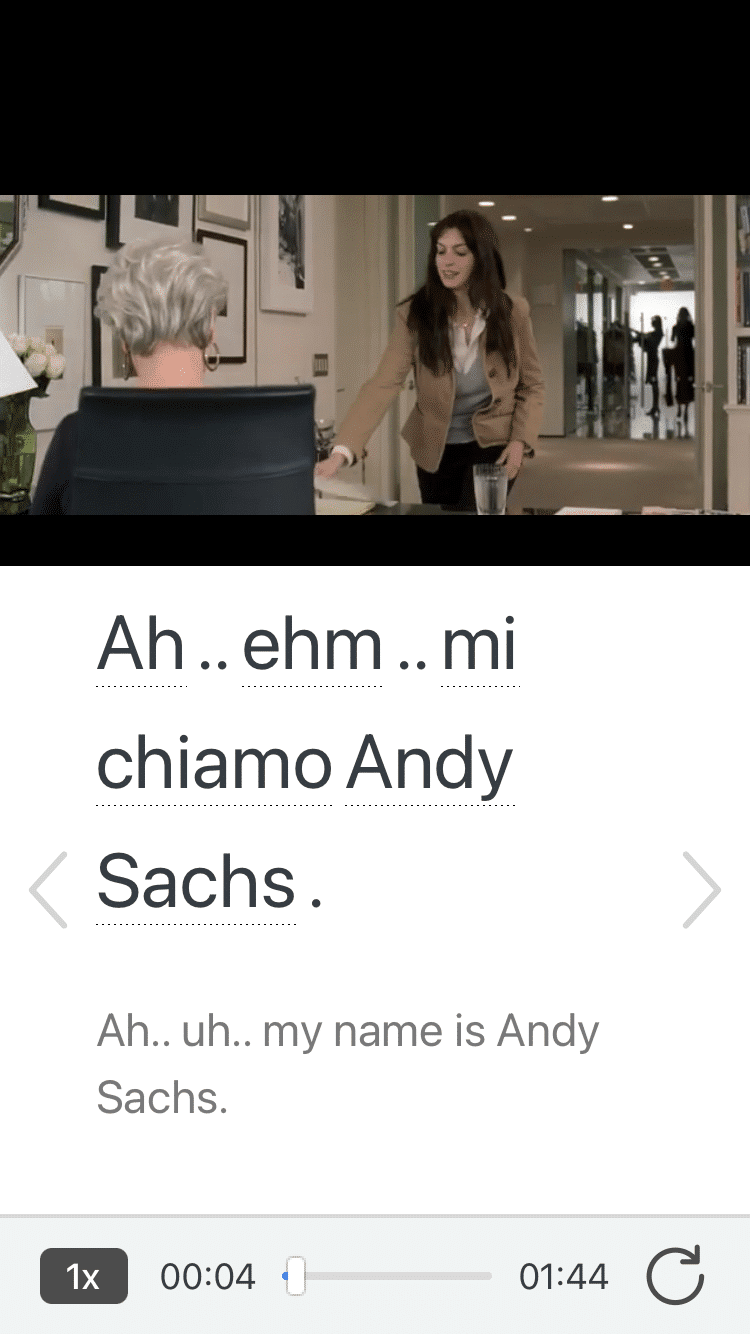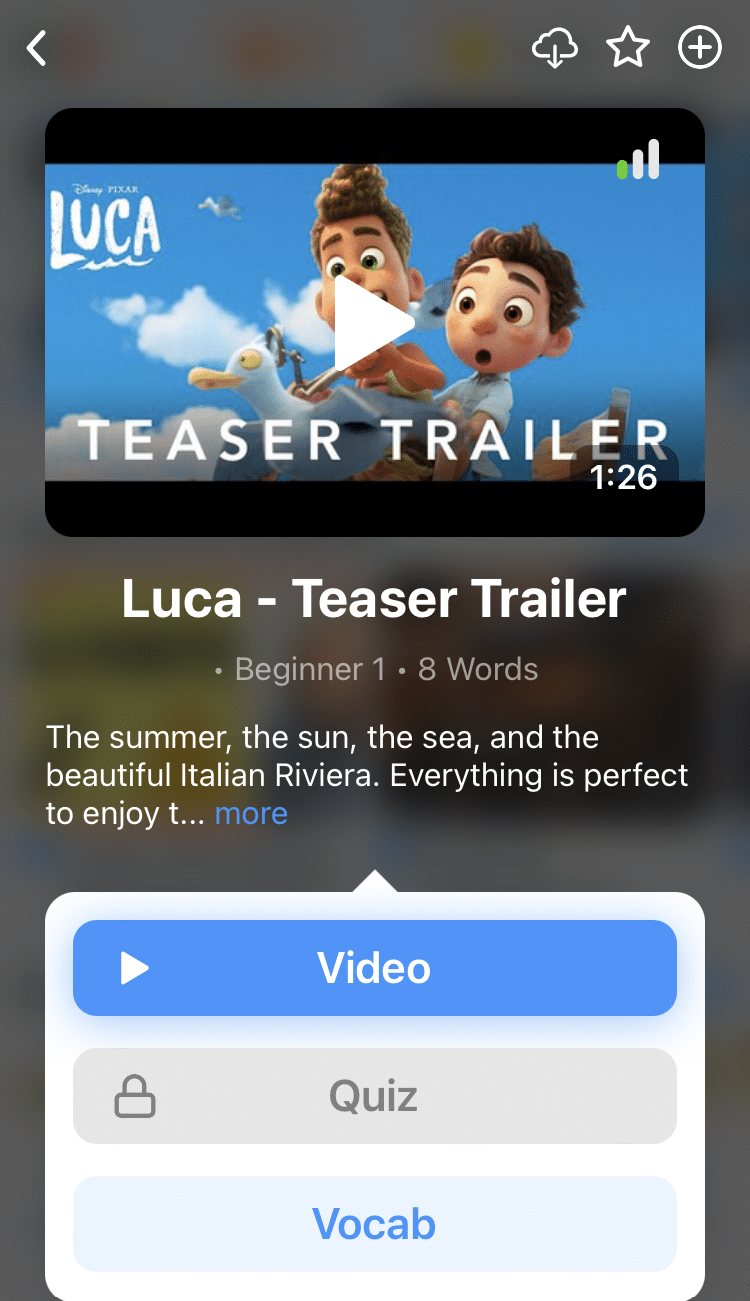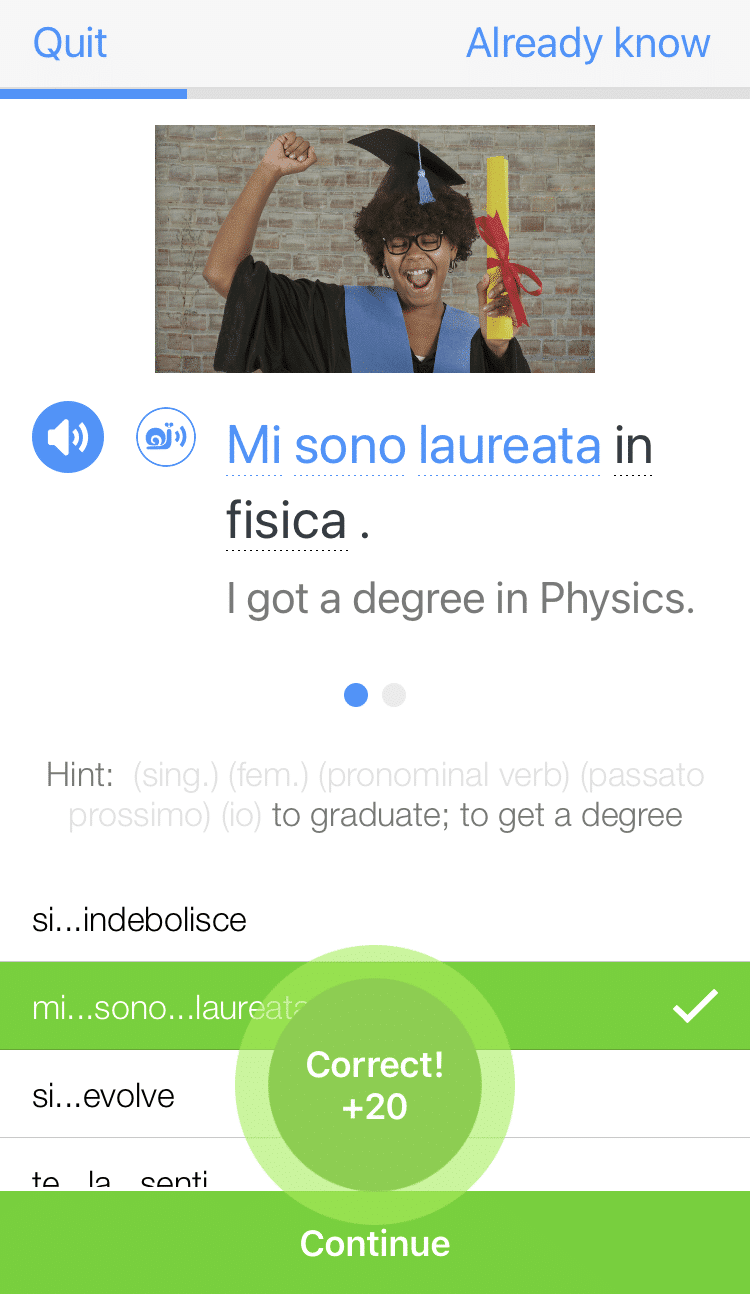
“Allora” in Italian: Meanings, Expressions and More
Allora is like a Swiss Army knife—it has so many functions and meanings!
And, it has proven to be a challenging language point for many language learners who often hear native speakers use the word in so many colorful ways.
In this post, we try to tame this beast of a word by first taking a look at what this versatile Italian word means and how it is used before explaining three reasons why allora can be challenging to learn.
Contents
Download: This blog post is available as a convenient and portable PDF that you can take anywhere. Click here to get a copy. (Download)
What Does Allora Mean and How Is It Used?
As we’ll cover later on in the post, one of the reasons why allora is challenging to nail down is because there’s no single translation for the word.
Some say allora has no meaning. Others say allora can mean anything you want. They’re both correct.
So, instead of looking for its translation, why not look for its function? How is allora being used in the statement or conversation? What is its communicative function?
Allora as a Lone Word
One of the first ways in which allora can be used is as a lone word.
| Uses | Explanation | Example sentences |
|---|---|---|
| As a question | It’s like asking, “So... ?” | Allora? |
| As a greeting | Allora can mean, “Hey, how’s it going?” | Allora! |
| As a warning or a way to get someone's attention | Allora can also mean, “C’mon!” or when a mother screams it at her kids, it means something bad is about to happen if they don’t pipe down. | Allora!!! |
Your job as an Italian language learner is not just to know the translation of individual words but to read communicative intent.
That’s why you don’t go running back to your flashcards to understand special words like allora. You refer to the situation, the context and the person talking.
Your journey with allora will begin by guessing what it means in context, then slowly anticipating its use and then, finally, liberally peppering it throughout your own conversations. You’ll make mistakes on this journey, but that’s okay.
Allora at the Beginning of a Sentence
It’s also very common to hear allora used at the start of a sentence.
| Uses | Explanation | Example sentences |
|---|---|---|
| As a filler word, like “uhm” or “uh” | Native speakers often use it to buy time. | For instance, you can use allora to introduce a thought that's still being formed. Imagine your friend asks you when you're free to hang out. You might respond: Allora... la prossima settimana. (Well... next week.) Allora is so flexible because the thought that follows it can be about anything. For example, when pointing to a menu to signal to the waiter what you'd like, you might say: Allora... Voglio questo, questo, questo, questo, e questo. (Well... I want this one, this one, this one, this and this one.) |
| As a sentence starter without a pause | You can use allora at the beginning of any sentence, even when not followed by a thoughtful pause. | Allora, andiamo! (Okay, let’s go!) |
Allora as “Then”
“Then” is an important translation for allora and an important time marker in a sentence.
And, just as “then” has many nuances of meaning in English, so does allora.
| Uses | Explanation | Example sentences |
|---|---|---|
| To demonstrate a sequence of things | Allora can be used to show what happened first and then what happened next. | Trova un lavoro. Solo allora potrai pensare a sposarti. (Get a job. Only then can you think about getting married.) Se sono arrivati, allora possiamo cominciare. (If they have arrived, then we can start.) |
| To give you a sense about the past, of what things were like “back then” or “at that time” | This look-back doesn’t necessarily have to be nostalgic—allora just gives you a chance to refer back to things in the past. The look-back may notice things that have changed or ceased to exist, or it may be about things that continue to be true in the present | Pensa a come doveva essere allora. (Think of what it must have been like back then.) Guarda com'era grassa già allora. (Look how fat she was, even then.) |
| As “since then” or “ever since" | Allora can be used to describe when something has happened and it has brought lasting results/changes. So, “ever since” that event, “this” is the continuing result. | Abbiamo parlato quella sera. E da allora siamo migliori amiche. (We talked that night. And we’ve been best friends ever since.) |
Allora as “So”
Allora can also be used in a similar way to the word “so” in English.
| Uses | Explanation | Example sentences |
|---|---|---|
| As a bridge between “cause” and “consequence” | This is when the word is translated as “so,” “therefore” or “because of that.” | Pioveva forte. Allora sono rimasto a casa. (It was raining hard. So I stayed at home.) Ero così spaventata, allora ho pianto. (I was very scared, so I cried.) |
| As a question | Allora can be used at the start of a question. | Allora, com'è stato il viaggio? (So, how was the trip?) Allora, cosa vuoi? (So, what do you want?) |
Notice from the previous two examples that allora is used at the beginning of the sentence, similar to our examples from the earlier section. This is the reality of allora. If you look very closely, it overlaps, and there’s no clean and clear separation of its uses.
Now that we’ve covered what this word means and the many different ways it’s used in Italian, it’s time to take a look at why allora can be challenging for Italian learners.
Why Is Allora Challenging to Learn?
1. It’s an extremely versatile word.
Make no mistake: every language has its own words that make language learners stay up at night.
One of the reasons allora is so challenging to nail down has something to do with the nature of words and languages. Words can take on multiple meanings—each of them valid and useful. Rare is the word with only one meaning.
Take the English word “tie” for example. It’s a pretty common word. You might use it multiple times a day to mean very different things. It’s the thing you wear around your neck, it’s the thing you do to your shoelaces, it’s the pranking score between you and your wife. And all that’s before you get to work! At the end of the day, before you go home, you might also be tied up at the office.
And, if you’re an English learner who looks at this three-letter word used in different contexts, you begin to ask yourself, “What does tie really mean?”
In our case, as language learners building up our treasure chest of Italian words, we want to have a clean, one-to-one correspondence between English and Italian words. Unfortunately, this isn’t always the case.
Allora is a versatile word that can mean so many different things.
As mentioned above, one of the translations for allora is the English word “so.” (Herein lies the problem because “so” itself has so many uses.)
Check out the video below by Vaporetto Italiano (Italian Vaporetto) to see allora used as “so.”
To really appreciate this, think of it the other way around. Imagine you’re a native Italian speaker trying to learn the translation and uses for the word “so.” Can you imagine how many meanings and functions the word has in the English language?! There’s a huge number of different examples you have to go through just to get the flavor of the word.
An English speaker can nonchalantly drop “so” at the beginning, middle or end of a sentence and leave an English learner’s head spinning.
“So, are you gonna buy this?”
“She won’t come out of her room. She’s been so embarrassed by the situation.”
“Is that so?”
“Why? Because I said so.”
“So what?”
“So, how was the movie?”
“It was so-so.”
“English is so hard.”
Imagine trying to learn all that.
Allora is a bit like that for Italian students.
2. Context matters.
When it comes to meaning, context matters.
Languages don’t exist in a vacuum. Words are meaningful in their immediate context. English words like “run,” “break,” “set” or “take” have a myriad of meanings, but they can be sufficiently understood in context.
Allora is a challenging word to nail down not only because it has multiple meanings but because native speakers tend to use it in different contexts.
You can learn about some of these meanings by watching the video below by Learn Italian with Lucrezia.
One native speaker might habitually use allora as a greeting, like when saying, “How are you?” or “What’s up?” as in this video by Italian Language Hub:
Allora might also be a teacher’s favorite word for her noisy students.
Or, it might be a mother’s word of warning to her kids.
And, just when you think you’ve got the hang of the word, somebody else will use it in a way you’ve never heard before.
To make matters worse, when you ask native speakers about the word—like Aziz Ansari’s character in “Master of None” does in the video clip below—they’ll have very different explanations, and you may begin to wonder which native speaker is right about allora.
Context really matters, and this includes the speaking habits of the native speaker you’re talking to.
Expose yourself to as much native content as possible to absorb the different ways allora can be used. Consider trying a virtual immersion platform. On FluentU, for example, you can try searching for a specific word to see how it’s used by native speakers in their own media.
FluentU takes authentic videos—like music videos, movie trailers, news and inspiring talks—and turns them into personalized language learning lessons.
You can try FluentU for free for 2 weeks. Check out the website or download the iOS app or Android app.
P.S. Click here to take advantage of our current sale! (Expires at the end of this month.)
3. Tone matters.
This is really an extension of context.
Allora can come with different nonverbal actions, facial expressions and gestures.
It can be followed by an exclamation point, a question mark, a comma, a period or an ellipsis.
Allora can be a statement unto itself.
It can be a question when accompanied by a rise in tone.
It can be an expression of different emotions, from anger to indignation, nonchalance, surprise or even encouragement.
So, if you’re a language student who hopes to fit allora into the same box where the flashcards for cane (dog) and gatto (cat) are neatly piled, then you’ll have a challenging time.
I hope that you now have a little firmer grasp of the word. To review, allora can be used as a single word, as an introduction to Italian sentences, as a time marker (“then”) and as a connector between cause and effect (“so”).
These are the most common uses of the word, but I’m sure you’ll bump into others as you learn the language and talk to native speakers—it’s best to just have fun with it.
Good luck with this slippery fella!
Download: This blog post is available as a convenient and portable PDF that you can take anywhere. Click here to get a copy. (Download)
And One More Thing...
If you're as busy as most of us, you don't always have time for lengthy language lessons. The solution? FluentU!
Learn Italian with funny commericals, documentary excerpts and web series, as you can see here:

FluentU helps you get comfortable with everyday Italian by combining all the benefits of complete immersion and native-level conversations with interactive subtitles. Tap on any word to instantly see an image, in-context definition, example sentences and other videos in which the word is used.

Access a complete interactive transcript of every video under the Dialogue tab, and review words and phrases with convenient audio clips under Vocab.

Once you've watched a video, you can use FluentU's quizzes to actively practice all the vocabulary in that video. Swipe left or right to see more examples of the word you’re on.

FluentU will even keep track of all the Italian words you’re learning, and give you extra practice with difficult words. Plus, it'll tell you exactly when it's time for review. Now that's a 100% personalized experience!
The best part? You can try FluentU for free with a trial.
Start using the FluentU website on your computer or tablet or, better yet, download the FluentU app from the iTunes or Google Play store. Click here to take advantage of our current sale! (Expires at the end of this month.)



